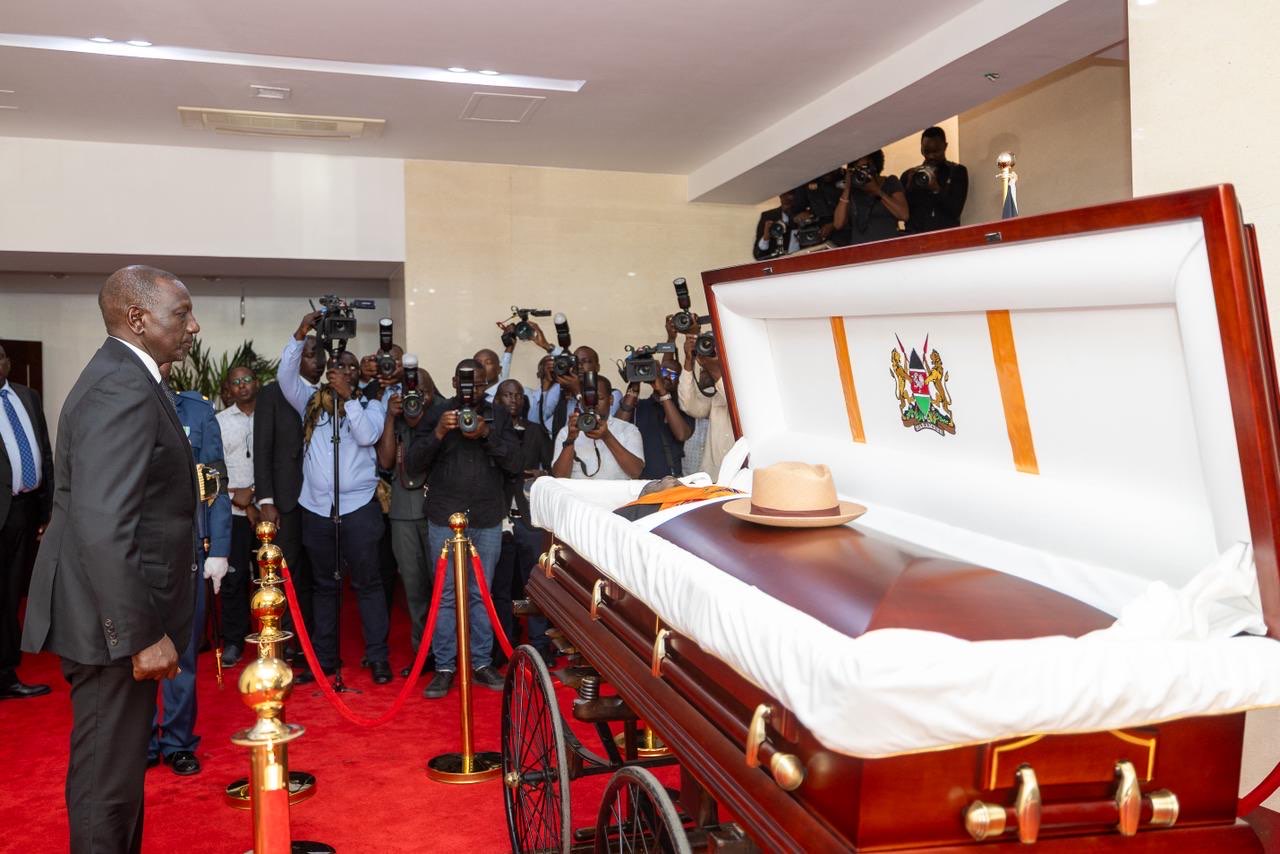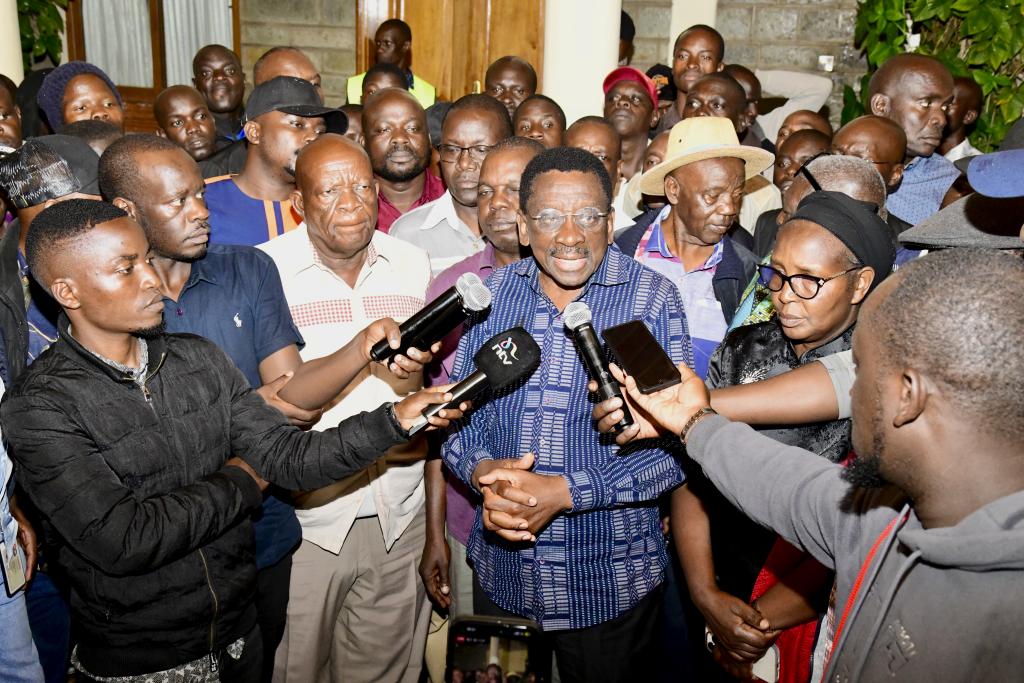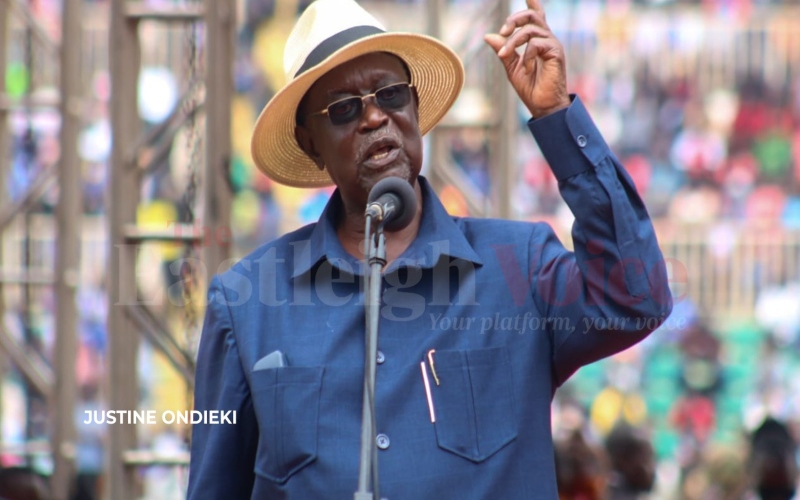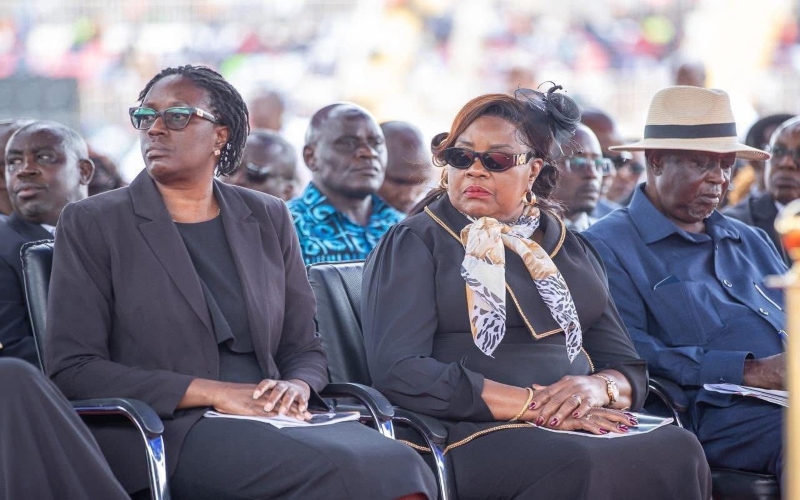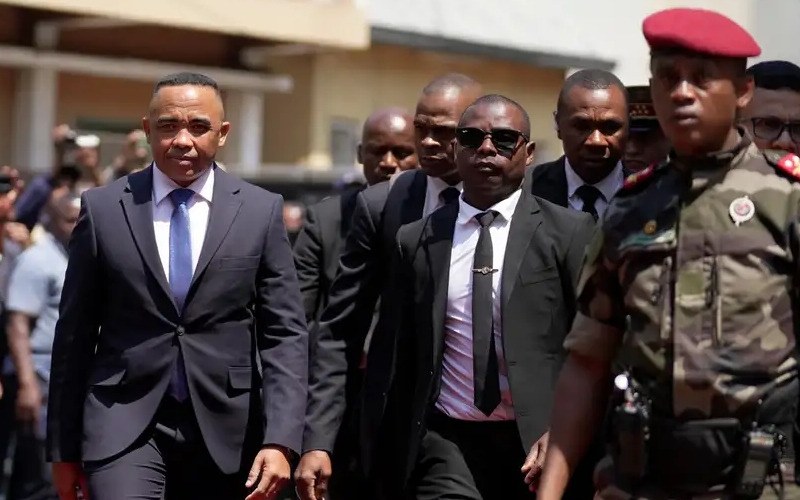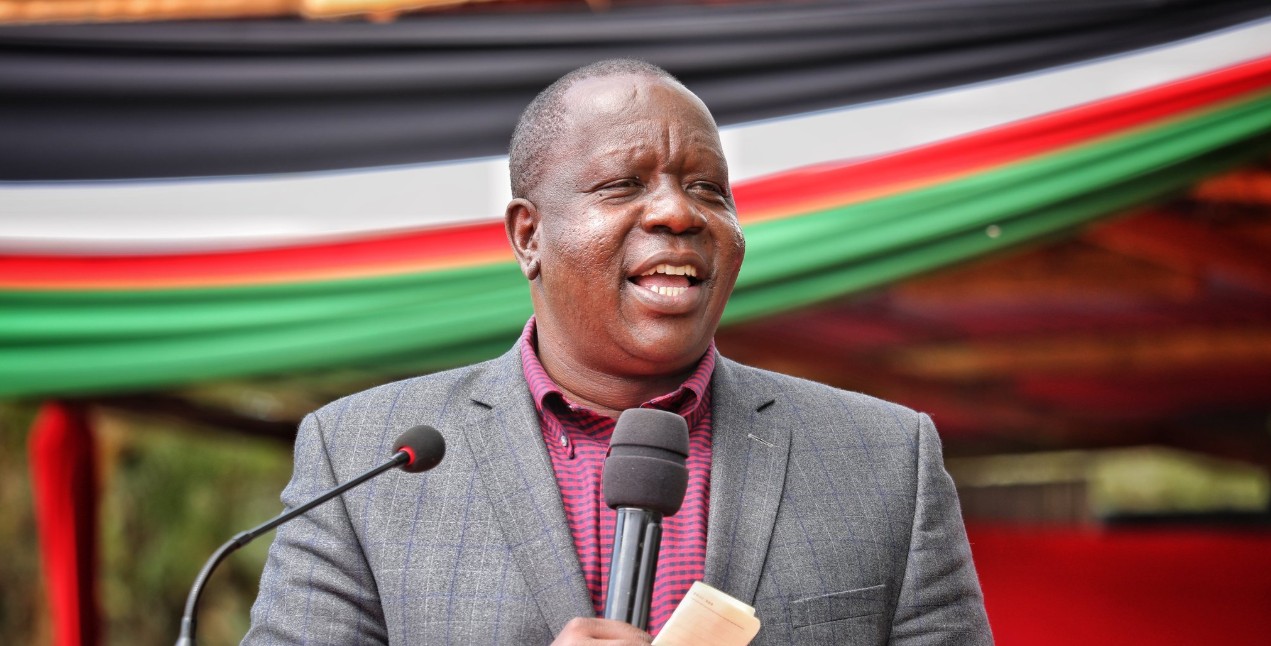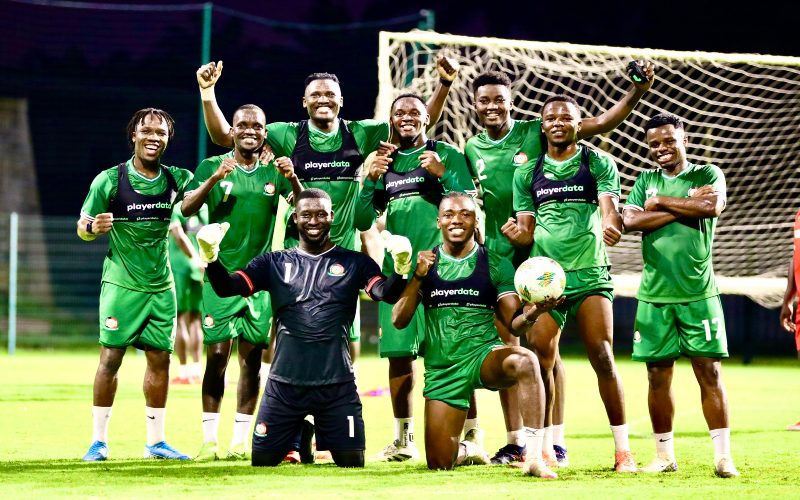Kenya-Somalia ties: From frosty relations to a flourishing bond
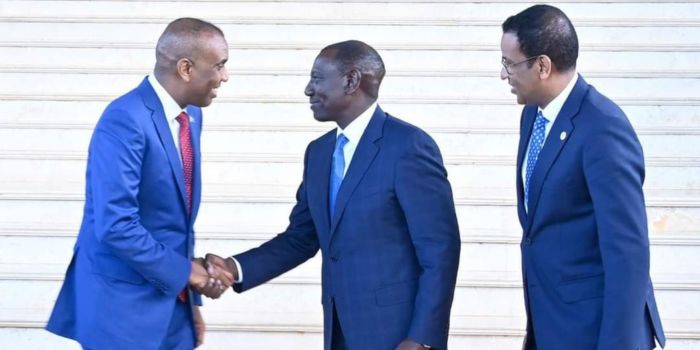
The two countries signed a political consultation deal which enables them to engage in regular discussions and exchange views on matters of mutual interest
The signing of a political consultation deal in Nairobi on Tuesday between Kenyan and Somali officials marked the peak of renewed relations.
This means the two countries will regularly discuss and exchange views on political matters of mutual interest, including contentious ones, such as bilateral relations, regional and international issues, security, economic cooperation, and diplomatic strategies.
More To Read
- Raila to be accorded a State Funeral, Ruto announces
- State to focus on market-driven skills in higher institutions of learning
- Gideon Moi's KANU party joins broad-based government in yet another political realignment
- President Ruto launches nationwide drive to plant 2 billion tree seedlings each year
- Teen who breached Parliament, claiming to be President Ruto’s son, freed
- President Ruto takes helm as COMESA chair, urges African-led growth and integration
Kenya’s Deputy President Rigathi Gachagua welcomed Somali Prime Minister Hamza Abdi Barre to Nairobi for an official visit on Tuesday. Gachagua said Kenya and Somalia should always amicably resolve any arising issues.
“We should find ways to amicably sort out any issue that would impede our bilateral relations,” he said.
Hamza, acknowledging the devastation caused by floods in Kenya, expressed his sympathies to Kenyans. He said Somalia is committed to strengthening its relationship with Kenya and promoting regional integration.
Ties between the two nations, which had badly deteriorated, were renewed nearly two years ago as President William Ruto assumed office. His Somali counterpart, Hassan Sheikh Mohamud, took office in May of the same year.
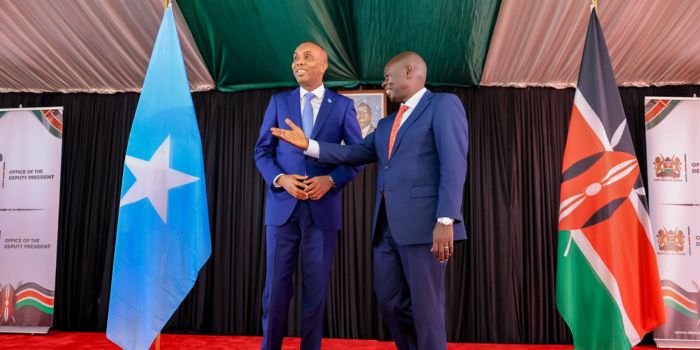 Somalia's Prime Minister Hamza Abdi Barre and Kenya's Deputy President Rigathi Gachagua during their meeting at the State House in Nairobi on May 7, 2024. (Photo: DPCS)
Somalia's Prime Minister Hamza Abdi Barre and Kenya's Deputy President Rigathi Gachagua during their meeting at the State House in Nairobi on May 7, 2024. (Photo: DPCS)
Kenya, which had suffered a blow from the frosty relations, declared its intention to renew ties in pursuit of a more stable region.
Ruto said this would open trade opportunities for all countries involved, fostering economic growth and cooperation across the region.
For Kenya, Somalia is a potential bigger business partner. Kenyan exports to Somalia grew 51.4 per cent in the nine months to September 2023, compared to the same period the previous year.
The growth in exports to Mogadishu marked a remarkable resurgence in 2019, with Kenya having registered a decline of 49 per cent between 2012 and 2019.
Experts contend that the future prosperity and regional security of both Kenya and Somalia depend on their connection.
According to the Institute for Security Studies, the two countries share cultural and economic ties and common security interests, which, if balanced, could benefit both countries and the Horn of Africa region.
Somalia is home to tens of thousands of Kenyan workers in the corporate, aid, service, and hospitality sectors. Although Kenyan citizens must obtain a visa before visiting Somalia, this process is expected to be simplified under regional protocols for a visa-free regime, now that Somalia is an East African Community partner state.
Prime Minister Hamsa Abdi Barre paid a visit to #Easliegh Neighbourhood & the largest Central-Eastern African mall, the #BBSMall. While touring #Somali commercial Center. He praised Somali community for their success and significant contributions to #Kenya’s business landscape pic.twitter.com/BU6hT2pVvd
— Somali Embassy-Kenya🇸🇴 (@SomaliainKenya) May 10, 2024
Kenya is home to a sizable Somali diaspora population and is thought to be the host country for over a million Somali refugees.
Nairobi’s Eastleigh hosts one of the largest ethnic Somali communities outside Somalia. In this working-class suburb of the Kenyan capital, those who fled the war in Somalia have built a big economic empire. It is said to contribute nearly 30 per cent of the revenues for Nairobi County.
Its transformation made it the worthy subject of Prof Neil Carrier’s book, Little Mogadishu: Eastleigh, Nairobi’s Global Somali Hub.
Significant investments
Kenya has also made significant investments in Somalia’s rehabilitation and organised several conferences that were crucial to the country’s efforts to promote peace.
In 2003, Kenya hosted and mediated the Somali National Reconciliation Conference in Eldoret and later in Nairobi under the auspices of IGAD.
Due to the comparatively favourable labour and economic conditions in Kenya, the Somali diaspora has made substantial investments, contributing billions of shillings to its GDP.
Since the economies of the two states are intertwined, commentators say cooperation must actively be encouraged.
The economic gains had been jeopardised when Kenya and Somalia clashed over maritime borders, with potentially rich sources of oil and gas in the Indian Ocean at risk.
It was President Hassan, the man rebuilding these relations, who decided to take the maritime dispute to the International Court of Justice (ICJ) after much procrastination from the Kenyan side on the talks seeking to resolve the issue.
In October 2021, the ICJ ruled in favour of Somalia.
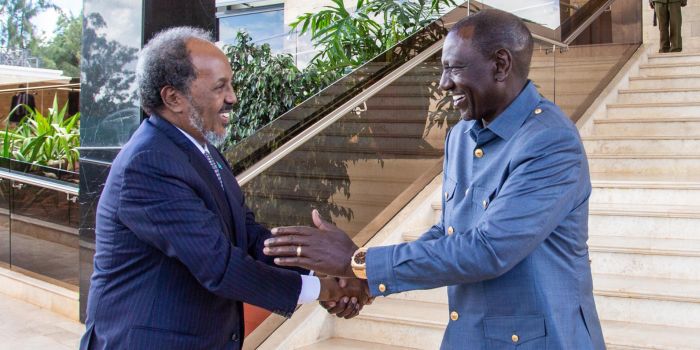 Presidents Hassan Sheikh Mohamud (Somalia) and William Ruto (Kenya) during their meeting in Nairobi on April 11, 2024. (Photo: PCS)
Presidents Hassan Sheikh Mohamud (Somalia) and William Ruto (Kenya) during their meeting in Nairobi on April 11, 2024. (Photo: PCS)
Two months after the ICJ ruling, Nairobi hosted Muse Bihi Abdi, the president of the breakaway region of Somaliland, which does not enjoy international recognition.
This diplomatic gesture irked Mogadishu, which later cut diplomatic ties with Nairobi, accusing Kenya of meddling in its internal politics.
In March 2020, Mogadishu imposed a ban on miraa, leading to a loss of over 50 metric tonnes of the crop from Kenya, valued at around Sh6 million ($50,000), according to Kimathi Munjuri, the chairman of the Nyambene Miraa Traders Association.
The ban was lifted in 2022 and Kenya’s miraa exports to Somalia surged.
All these gains have been complemented by Somalia’s recent accession as the eighth member of the East African Community, presenting a promising opportunity for Nairobi and Mogadishu to strengthen their ties.
The move not only aims to bolster Somalia’s economy but also offers mutual benefits to both Mogadishu and EAC members.
Kenya stands to gain significantly given its shared 800-kilometer border with Somalia. Moreover, Somalia’s expansive coastline, the longest in Africa, serves as a strategic gateway to offshore resources such as oil and gas.
To consolidate economic gains and opportunities, Kenya prioritises stability in Somalia, playing a leading role in regional counterterrorism.
The Kenya Defence Forces (KDF) actively contribute to the African Union Transition Mission in Somalia (ATMIS), supporting border security, and counter-terrorism measures.
Top Stories Today
